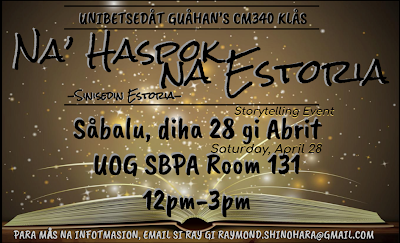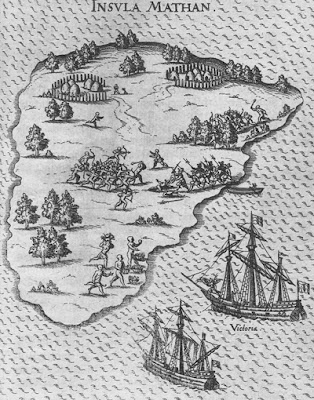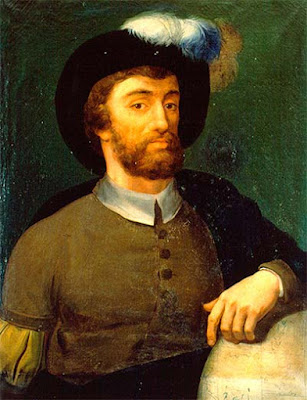Na'haspok na Estoria

For those interested in listening to Chamoru stories in the Chamoru language, please come join the Chamorro Studies Majors and Minors at UOG for this special event: "Na'haspok na Estoria" on April 28 from 12-3 pm at SBPA 131 at UOG. The name "Na'haspok na Estoria" means "stories that fill you up" as the word "håspok" means sated or filled up as in your stomach being full. The event should be very interesting as most of the presenters are around the age of 40 or less, but still fluent in the Chamoru language. Alot of events that I am organizing or participating in lately seem to have this sort of theme, where those of us who are younger learners of Chamoru and often times second-language learners, nai ti mandångkolo' gi halom i mismo fino'-ta, are nonetheless attempting to take up the kulo' for language vitality.

